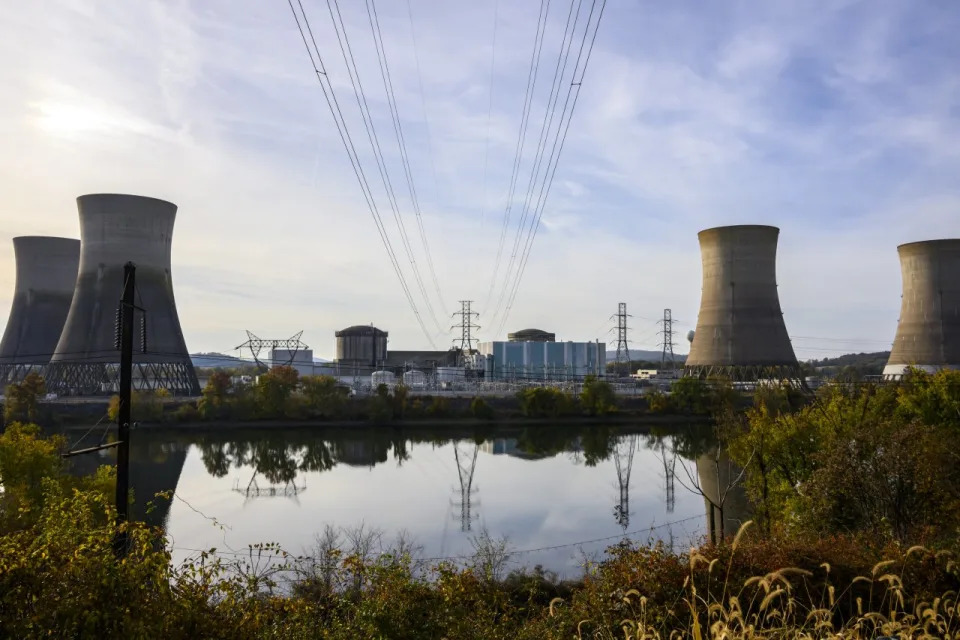Power Stocks Had Been on an AI Tear. Then Came DeepSeek.

Chinese AI startup DeepSeek has laid bare one of the power sector’s greatest fears: The AI boom might not need nearly as much electricity as anticipated.
DeepSeek, a generative-AI model trained using substantially less energy than its American competitors, routed tech and power company shares last week, eroding stock gains spurred by data center growth projections. Now, the companies planning to power those data centers are grappling with the prospect that AI may become much more energy efficient, and fast.
Executives and analysts say DeepSeek’s launch is unlikely to have a near-term effect on data-center investment plans as tech companies lock down contracts with utilities and power producers for huge amounts of electricity. Longer term, however, they say such efficiency gains call into question the need for massive investments in new power plants built to run for decades.
“As a developer, I would say we’re trying to remain sufficiently disciplined so that if things like DeepSeek do change the trajectory of demand growth, you have the ability to calibrate your activity,” said Paul Segal, chief executive of LS Power, which operates power plants and renewable-energy projects across the country.
The nation’s largest competitive power providers, including Constellation Energy and Vistra, have been among the biggest winners in the AI boom, with plans to expand their fleets of power plants and renewable-energy projects. Last week, their shares took some of the steepest falls on concerns that those plans might not be as lucrative as anticipated. Prices have since partially recovered but are well off previous highs.
Constellation, whose shares had risen more than 400% since its spinoff from utility company Exelon in 2022, recently agreed to acquire competitor Calpine for $16.4 billion. It plans to spend another $1.6 billion to restart the undamaged nuclear reactor at Three Mile Island and sell the power to Microsoft.

Constellation spokesman Paul Adams said that the company is excited to see advances in power efficiency that could “lower the unsustainable growth in energy demand to a more achievable level.”
“We must rationalize the demand or we will continue to struggle to meet the nation’s energy demands, maintain grid reliability and reduce pollution,” he said.
U.S. electricity demand had remained relatively flat for much of this century. That demand is expected to grow because of new manufacturing, as well as consumers adopting electric vehicles and shifting away from fossil fuels for home heating and cooking. AI then turbocharged those projections.
A report published last month by Lawrence Berkeley National Laboratory found that data centers could consume between 6.7% and 12% of total U.S. electricity by 2028, up from 4.4% in 2023.
John Ketchum, CEO of NextEra Energy, said that even with efficiency gains in the tech sector, the power industry is starting “from kind of scratch” in its response to the upswing in demand from AI and other industries.
“We’re on the front end of this, and we’re going to need a lot of compute capacity and a lot of data-center build out, which is going to require a lot of power,” Ketchum said.
Meta Platforms and Microsoft last week each affirmed plans to invest heavily in AI development despite the DeepSeek launch. Meta said it would invest “hundreds of billions of dollars,” and that it expects to bring online almost a gigawatt of data-center capacity this year.
“I continue to think that investing very heavily…is going to be a strategic advantage over time,” Meta CEO Mark Zuckerberg said. “It’s possible that we’ll learn otherwise at some point, but I just think it’s way too early to call that.”
Companies including SoftBank, Oracle and OpenAI have pledged to spend $500 billion to build new AI infrastructure in a venture they call Stargate , and Chevron last week said it would build new natural-gas-fired power plants to fuel data centers.
Jefferies analyst Julien Dumoulin-Smith said he doesn’t expect a slowdown in AI-related power spending for years as tech companies work through numerous constraints in connecting to the grid and securing labor and equipment.
“We’re getting tangible, specific orders for project construction into 2031,” he said, adding that he considers it very unlikely that momentum would suddenly halt.
Write to Katherine Blunt at [email protected] and Jennifer Hiller at [email protected]

